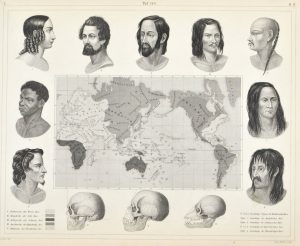There has been a lot of debate about whether BAME should be used to describe non-white people. The BBC asks in 2018, should the term BAME be ditched. In the article Professor Ted Cantle, who chaired a government review of community cohesion began arguing that including different people under one label – black – was confusing and wouldn’t work. Professor Tariq argued it was particularly harmful for British Asians, as it gave undue prominence to Afro-Caribbean people. How interesting that Professor Tariq Modood, seemed to be concerned about black prominence. Varsity commented in October 2020 that, BAME is an outdated term, struggling to define the experience of those who do not identify as white. My personal prospective has been, we are not a homogenised group with the same experience. The acronym is redundant and should not be used. It only came to me recently that if you look at this acronym more closely you will see there is a glaring anomaly. So, lets break it down.
Black Asian, Minority Ethnic – You will note that Black is the only colour mentioned in this acronym, it doesn’t tell you where the people originate from. If you look at the term ethnic or ethnicity this means a state of belonging to a social group that has a common national or cultural tradition. Being Black doesn’t mean we have the same common national or cultural tradition. Black people are definitely not a minority group when you look at the word demographics.
So where did BAME come from? The origin goes back to the 60s and 70s as cited by Professor Ted Cantle, from my research, I have found it difficult to find out who came up with this term. Moreover, what was their thinking behind it. Was it created to be of benefit to those it refers to or just to make it easier for those who wish to discuss people who don’t identify as white?
What has caused the sudden surge of discussion around the term BAME? I think this has always been a topic of discussion and, I myself, have never been keen on this term for some years. Could it be the death of George Floyd or the Covid-19 outbreak affecting Black people disproportionately, Ethnicity Pay Gap and the disparity of pay between Black and other people grouped under the term BAME?
I suspect it is all the things mentioned. Black people no longer wish to be grouped with others we have our own unique issues that demand us to hold on to our identity. We cannot be diluted by this term of reference it is lazy and does not represent us.
I understand the process of identifying people by the colour of a person’s skin was first looked at in 1700s. Wikipedia identified a man called Johann Friedrich Blumenbach, who was considered to be important as a race theorist. He made claims there were five races: Caucasian, Mongolian, Malayan, Ethiopian, and American.

Identifying the human race in terms of skin colour, has been common since our ancient past. François Bernier (1684) doubted the validity of using skin colour as a racial characteristic. By the 18th century, race was widely used for sorting and ranking the peoples in the English colonies – Europeans who saw themselves as free people, Amerindians who had been conquered, and Africans who were being brought and sold as slaves and the usage of this catergorisation continues today (Britannica.com).
It is worrying to me that we are still using the categorisation of the past, to continue to separate and identify people based on the perception of superiority. It was Martin Luther King that said;
“I have a dream that my four little children will one day live in a nation where they will not be judged by the colour of their skin, but by the content of their character”.
Martin Luther King’s statement is a powerful one that encourages the world to do away with the characterisation of colour and look at the individuals and their behaviours. The world has moved on, we need to develop better ways to identify ourselves. Only mutual respect will allow serious discussion about this issue. No race is more inferior than an another, we must accept there is good and bad in all races, let’s work together to make things better for everyone.